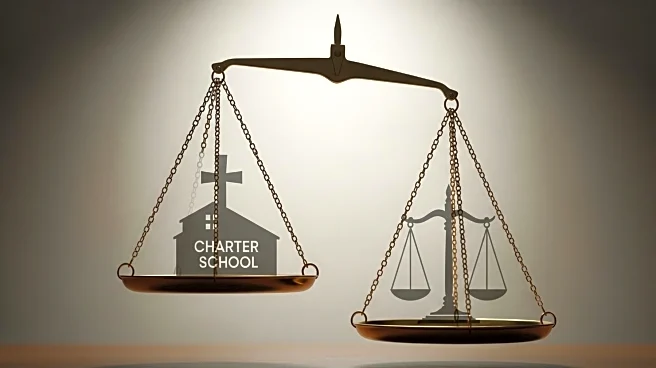What is the story about?
What's Happening?
The Supreme Court recently faced a deadlock in a case concerning the allocation of public funds to religious charter schools, specifically a virtual Catholic charter school in Oklahoma. The case, St. Isidore v. Drummond, challenged the separation of church and state by seeking public funding for religious instruction. Justice Amy Coney Barrett recused herself from the case, resulting in a 4-4 split, which upheld the lower court's decision against the school receiving the grant. Barrett's recusal was reportedly due to safety concerns for her family amid threats against the court. This decision highlights ongoing debates about religious liberty and public education funding.
Why It's Important?
The deadlock in this case underscores the contentious issue of public funding for religious education, which could have significant implications for public schools. Critics argue that allowing public funds for religious instruction could divert resources from public schools, potentially exacerbating funding challenges. The decision also reflects broader tensions in the U.S. regarding the separation of church and state, particularly in education. The outcome maintains the status quo but leaves the door open for future challenges, as legal experts anticipate similar cases may arise, potentially reshaping the landscape of public and religious education funding.
What's Next?
The issue of public funding for religious charter schools is likely to resurface in the Supreme Court, as legal experts predict similar cases will be brought forward. The ongoing debate may prompt legislative or judicial actions to clarify the boundaries of religious liberty in education. Stakeholders, including public school advocates and religious institutions, will continue to monitor developments closely, as future rulings could significantly impact the funding and operation of both public and religious schools.
Beyond the Headlines
This case highlights the ethical and legal complexities surrounding the separation of church and state in education. The decision not only affects funding but also raises questions about the role of religious instruction in publicly funded schools. The broader implications could influence public perception of the Supreme Court's role in balancing religious freedom with public policy, especially in a politically charged environment.

















